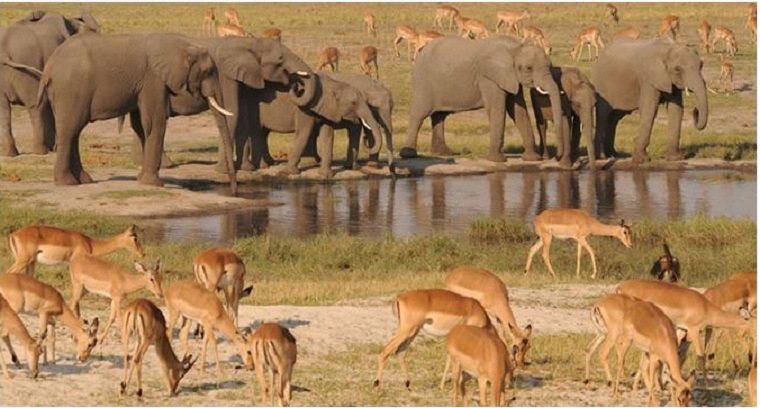We have an option to walk out of CITES but it is a position which we have to clearly consider with its merits and demerits whether it will solve the problems we have or not. The potential bias of our products are members of CITES. They will not be in a position to purchase any if they are still within CITES. If moving out of CITES is a solution to our problems, we would have left the solution within CITES. On due consideration and at the moment, our thinking as a region is that we need to intensify our efforts to influence CITES to make due consideration based on science and experiences our communities are facing on a daily basis to allow these countries to do once off trade of our stock piles but also to be flexible when it comes to trade in our wildlife resources.
Beyond that, as Government, we are working on a policy which we are almost concluding and awaiting Cabinet approval. We believe that it is important as a Government to consider options to compensate communities that are bearing the brunt of human-wildlife conflict. We are at the moment perhaps the only country in the region that still has not brought that as a policy and that policy as I said, is awaiting Cabinet approval. We believe it will go a long way because it also utilises proceeds from wildlife, particularly from hunting so that we are able to respond to the increasing human-wildlife conflict.
I must assure this august House that as we go to CITES this year, we will take a very strong position to advocate for CITES to consider strongly our position because the situation keeps getting worse from CITES to CITES and we know that sometimes some Government, because of funding from certain so-called animal rights groups, fail to consider reason and science. We are in the process of engaging them so that when we go there, we will speak with one voice. I thank you Mr. President Sir.
HON. SEN. DR. MAVETERA: My supplementary question to the Minister is, could the Minister appraise the nation of the benefits which we are getting from CITES – that will be very useful because I think it is now common cause that CITES does not serve our national interests.
HON. M. NDLOVU: Mr. President Sir, CITES is a voluntary body that was established to regulate trade in wildlife and wildlife products internationally. This came about because of increasing poaching levels and because there was always a ready market for these poached products, it then became important that there be formed a body that analyses different plant and wildlife species with regards to their survival, whether they are likely to face extinction and come up with collective international policies that can help curb this.
I must say that as Zimbabwe, we have benefited from CITES and CITES has also benefited from us through sharing best practices in conservation of our different natural resources and best practices in terms of international trade. Admittedly, when it comes to particularly our elephants, we seem to be struggling to extract the full benefits from this. However, we believe that as a country and as a region, we are in a position to help conserve these important animal species for the world, that is why we have always emphasized that we want science to lead the decision making and not necessarily politics because it is clear that it is politics that is at play.
Continued next page
(132 VIEWS)


